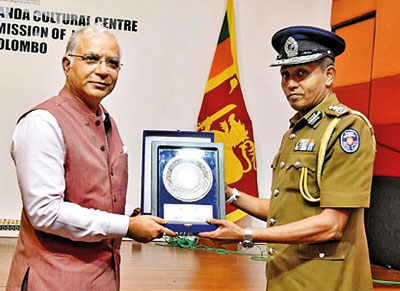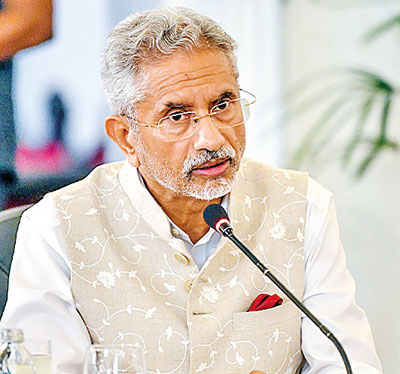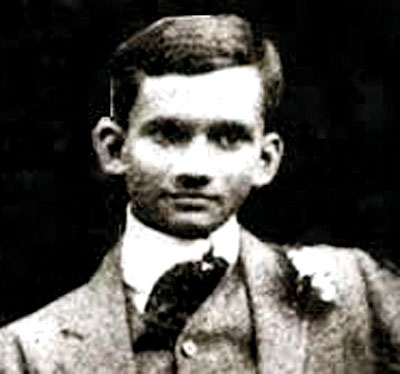Columns
Political activists can be hired: Rs. 4.5mn package provides 3000 people for three hours for rallies
View(s):The election campaign has given rise to many new businesses, but none as novel as the one carried out by companies that provide manpower services.
Several of them have been reaching out to candidates offering services with different packages depending on how much each one can spend.
The service to provide 3,000 persons for public rallies for three hours is Rs. 1,500 a person or Rs. 4.5 million for the whole package, which includes transportation and providing attire with party colours for some of the participants, flags, banners and meals. Additional transport costs apply if the meetings are held outside the Colombo district.
For candidates with a bigger budget, the package goes to around Rs. 3,000 for a person. In addition, there are also Rs. 50 million packages on offer to carry out house-to-house campaigns where the manpower service mobilises people to distribute leaflets and also brief potential voters on the virtue of the candidate who has hired them.
Translator gets applause for local slang at AKD meeting
Translating the speeches of politicians at election rallies is often considered difficult, even for experienced translators.
When it comes to simultaneous translation of skilled orators like National People’s Power presidential candidate Anura Kumara Dissanayake to another local language, it is even more difficult.
Mr. Dissanayake was speaking at a political rally in Puttalam last Saturday, and one of the local party supporters was asked to translate his speech simultaneously into Tamil. As Mr. Dissanayake spoke, the translator modified his translation for the local slang with colloquial
connotations of certain words, which saw applause from the local audience.
Noticing how the translation was received by the audience, Mr. Dissanayake tapped on the shoulder of the translator to appreciate him and continued his speech.
30 police personnel complete Hindi course; what about Tamil and English
Thirty police personnel who completed a spoken Hindi course conducted by the Swami Vivekananda Cultural Centre, the cultural arm of the High Commission of India in Colombo, were handed over their certificates to coincide with Hindi Day on Friday.
Indian High Commissioner Santhosh Jha handed over the certificates to the officers who successfully completed the course. He also released the annual Hindi publication of the Centre “Sri Lanka Hindi Samachar” at the event.

In his speech, Sr. DIG (Admn) Lalith Pathinayake thanked the Cultural Centre for providing training to the Sri Lankan police personnel in spoken Hindi, which is beneficial for communication.
It is hoped that police personnel also take an interest in learning other languages, such as Tamil and English, as they will be even more beneficial for communication.
ITAK in controversy and confusion over presidential candidate
It is a known secret that Ilankai Thamil Arasu Katchchi (ITAK) is in some sort of messed-up situation about the party’s decision when it comes to supporting a candidate in the upcoming presidential polls and sending mixed signals to its cadres at the grassroots level.
Even though the party’s Central Committee decided collectively on September 1 to back Samagi Jana Balawegaya candidate Sajith Premadasa, some senior party members, including leader Mavai Senathirajah and newly elected leader S. Shritharan, differed with the party’s decision.
Mr. Shritharan had already declared that he would extend support to Tamil common candidate P. Ariyanenthiran and engaged in mobilising his supporters in Kilinochchi to campaign for the common candidate. Trincomalee District Parliamentarian K.S. Kugthasan is also on the same path even though the party decided otherwise and urged Mr Ariyanenthiran to drop out of the race.
Meanwhile, Mr. Senathirajah also made some conflicting statements, and following a meeting with President Ranil Wickremesinghe at his residence in Thellipalai last week, he expressed hopes that under the renewed mandate of the President, the longstanding ethnic conflict would be resolved and the former war-affected regions would see some economic development and prosperity.
Amidst all this confusion and arbitrary decisions by seniors in the party, ITAK secretary P. Sathiyalingam sent a letter to senior party officials and its regional wings this week reiterating the party’s decision to back Mr. Premadasa and the request to Mr. Ariyanenthiran, who is a Central Committee member of the party, to drop out of the race.
The party is expected to carry out an aggressive campaign through its cadres at the grassroots level in support of Mr. Premadasa in the coming days as the election canvassing activities are scheduled to be brought to an end by September 18.
Political rally caterers in soup
The Election Commission (EC) has become more active in taking action against election law violations during this year’s presidential election.
One main election law violation is the act of bussing crowds for rallies by offering packets of rice and liquor.
To crack down on the practice, the EC, with police assistance, raided houses, eateries, and caterers to arrest people who were preparing meals for orders. The packets of food, equipment, and ingredients used to prepare meals have also been seized.
One of the latest incidents occurred at Harliwella in Galle on Thursday, where a man was arrested with more than 330 food packets, which were to be distributed to people taking part in a meeting attended by one of the presidential candidates.
The man was produced in court and released on Rs 500,000 surety bail.
However, those who are placing orders and obtaining the services of caterers and food sellers, as well as the candidates themselves, go scot-free.
Sri Lanka to apply for membership in BRICS
As Sri Lanka is scheduled to go for decisive presidential polls next week, the Cabinet of Ministers granted formal approval this week for the country to apply for membership in BRICS—named after its original five members, Brazil, Russia, India, China, and South Africa.
The formal approval to join the ‘club’ was granted based on the Cabinet memorandum submitted by Foreign Affairs Minister Ali Sabry. The memorandum also included recommendations from the report of an officer’s committee, which was appointed by the Cabinet on January 24 to consider the pros and cons of joining the group. The memorandum was submitted for approval since most of the members of the Committee responded positively to Sri Lanka being a member of the BRICS and accessing credit through its newly established development bank.

India's External Affairs Minister defends BRICS
Coincidentally or not, the topic of BRICS came up during a discussion where India’s External Affairs Minister S. Jaishankar took part at the Geneva Centre for Security Policy, a Switzerland-based think tank, this week.
When asked about the need for BRICS while a grouping like the G20 already existed, Minister Jaishankar responded that if the G7 could exist when there was the G20, there was no reason why BRICS could not. Dr. Jaishankar made this comment during a conversation with Ambassador Jean-David Levitte, the head of GCSP.
BRICS was founded as an intergovernmental organisation by Brazil, Russia, India, and China in 2009, with South Africa joining in later. In January this year, five new countries—Iraq, Saudi Arabia, Egypt, the United Arab Emirates, and Ethiopia—joined the bloc.
“Why the club? Because there was another club. It was called the G7, and you will not let anybody else into that club. So, we go and form our own club,” the Indian foreign minister said.
“I’m still struck by how insecure the (Global) North is when you speak about the BRICS. Somehow, something seems to get under people’s skin,” he said.
Is Joseph Stalin the education minister?
“Who is the education minister of Sri Lanka?” was the question included in the term exam of a private school in Colombo.
Not all got the answer right, but the answer by a particular student left many amused. Her answer was, ‘Joseph Stalin.”
Don’t blame the student given that the teacher’s trade union leader appears more on TV and in newspapers than Education Minister Susil Premajayantha.
Spirited attempt to mobilise voters in north
In the North, political parties used to mobilise people based on ideologies or sentiments, but it seems that the culture of offering ‘special perks’ to people to mobilise them is noticed in the current election period.
The talk of the town these days is that political parties source supporters to attend rallies at Rs 2,000 along with a bottle of strong ‘spirit’ for each. An old gentleman was heard saying to his colleague that he looks forward to the next elections, be it parliamentary or local polls.
Presidential pardon for Henry Pedris: Miscarriage of justice corrected
President Ranil Wickremesinghe has posthumously pardoned Captain Diyunuge Edward Henry Pedris, who was executed 109 years ago following an unjust trial under British colonial rule.

Captain Henry Pedris
The pardon was granted in accordance with the powers vested in the President under Article 33(h) of the Constitution and was officially announced through a special gazette issued on Thursday.
Captain Pedris, a respected military officer and social activist, was wrongfully put to death on July 7, 1915, following a court martial that was convened by a proclamation from the then Governor of Ceylon, Robert Chalmers, on June 25, 1915.
His execution was part of a series of repressive actions by the colonial administration during the 1915 riots. Captain Pedris was falsely accused of inciting racial violence.
Born on August 16, 1888, in Galle, he held the rank of captain in the Ceylon Defence Force and served in the Colombo City Guard Force. Beyond his military service, he was a notable social figure in Ceylon during British rule. His execution by the British authorities remains one of the most controversial events in the colonial history of Sri Lanka.
The presidential pardon serves as a formal recognition of the miscarriage of justice that took place over a century ago.
Buying or selling electronics has never been easier with the help of Hitad.lk! We, at Hitad.lk, hear your needs and endeavour to provide you with the perfect listings of electronics; because we have listings for nearly anything! Search for your favourite electronic items for sale on Hitad.lk today!


Leave a Reply
Post Comment